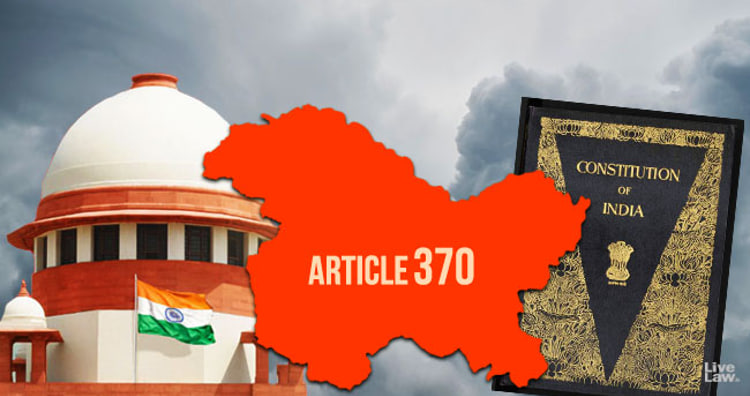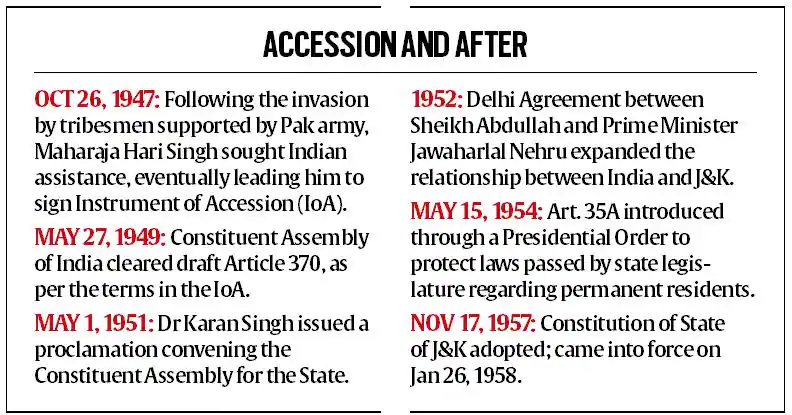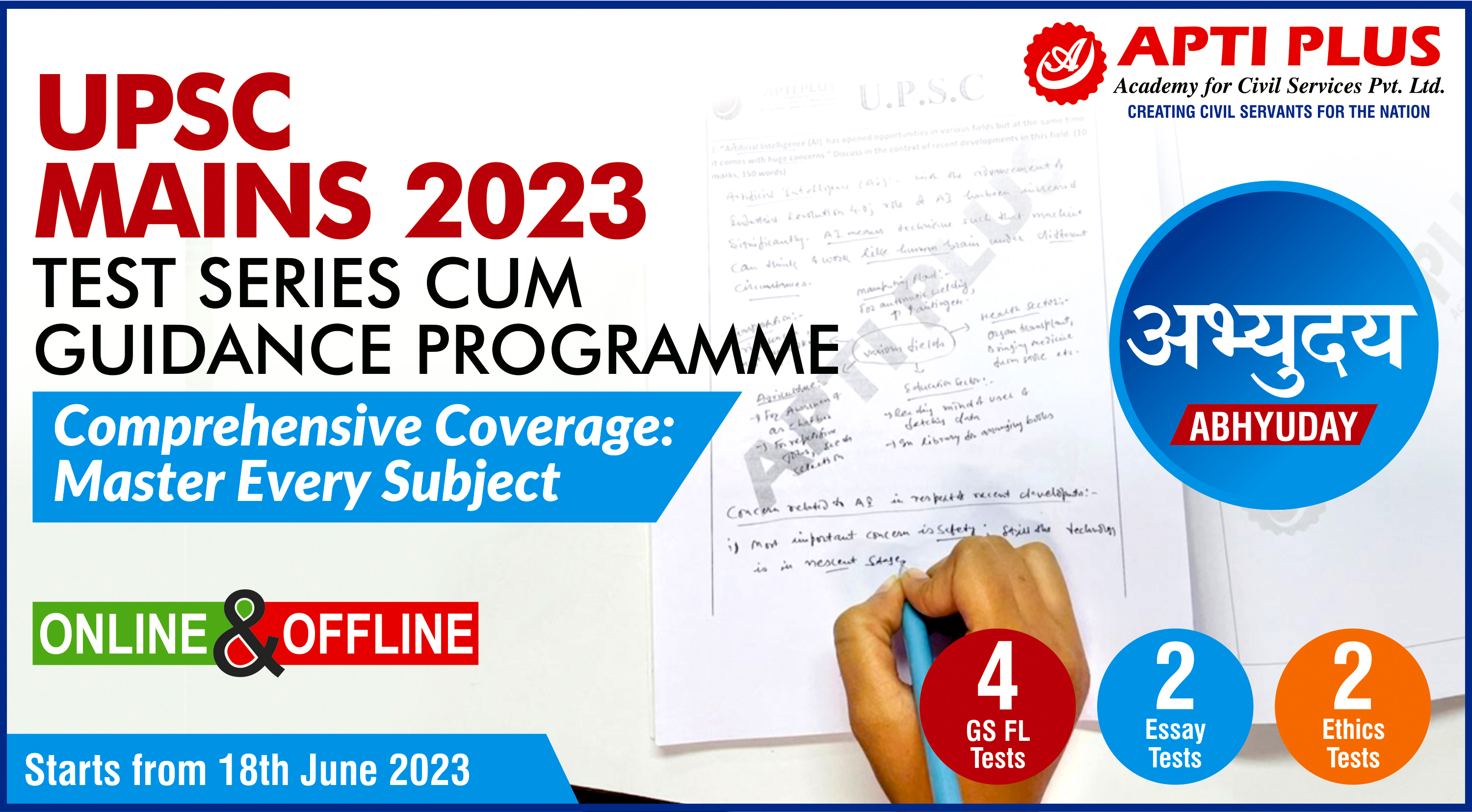Description

Copyright infringement not intended
Context: The constitutional validity of the revocation of Article 370, which gave special autonomy to Jammu and Kashmir, is being examined by the Supreme Court. The petitioners challenging the decision have argued that Article 370 was not a "temporary provision" as it was often called, but a permanent feature of the Constitution that reflected the unique circumstances of the state's accession to India.
Details
- Article 370 of the Indian Constitution is a part of the section called “Temporary, Transitional and Special Provisions”. It deals with the special status of the state of Jammu and Kashmir, which has been a disputed territory since the partition of India in 1947.
- According to Article 370(3), the President of India can declare that Article 370 is no longer valid or that it applies only with some changes and from a certain date. But before doing so, the President has to get the approval of the Constituent Assembly of Jammu and Kashmir, which was formed to draft the state’s constitution.
- Some people think that Article 370 is a temporary provision because it has a clause that allows it to be revoked. They believe that the makers of the Indian Constitution did not want Jammu and Kashmir to have a permanent special status.
- But others disagree. They say that Article 370 is not temporary because it was meant to protect the autonomy and identity of Jammu and Kashmir, which had acceded to India under certain conditions. They also point out that the Constituent Assembly of Jammu and Kashmir dissolved itself in 1957 without recommending any change to Article 370.
Background
- Article 370 was a special provision in the Indian Constitution that granted autonomy to the state of Jammu and Kashmir. It was based on an agreement between the leaders of India and Jammu and Kashmir after India's independence.
- Article 370(3) stated that the President of India could declare that Article 370 would cease to be operative or operate only with some exceptions, but only with the consent of the Constituent Assembly of Jammu and Kashmir. This was a body elected by the people of Jammu and Kashmir to draft their constitution.
- The Constituent Assembly of Jammu and Kashmir was formed in 1951 and completed its work in 1956. It adopted a constitution for the state that came into effect on January 26, 1957. After that, the Constituent Assembly dissolved itself.
- According to a lawyer who challenged the abrogation of Article 370 in the Supreme Court, this meant that Article 370 became a permanent feature of the Indian Constitution after 1957. He argued that since the Constituent Assembly of Jammu and Kashmir no longer existed, no authority could give consent to change or remove Article 370.
- He claimed that Parliament had no power to abrogate Article 370 in August 2019, as it did not have the recommendation of the Constituent Assembly of Jammu and Kashmir, which was a condition laid down by Article 370(3).

Must-Read Articles:
ARTICLE 370: https://www.iasgyan.in/daily-current-affairs/article-370-and-pakistan
STATUS OF JAMMU AND KASHMIR: https://www.iasgyan.in/daily-current-affairs/status-of-jammu-and-kashmir
J&K REORGANISATION (AMENDMENT) BILL 2023: https://www.iasgyan.in/daily-current-affairs/jk-reorganisation-amendment-bill-2023
|
PRACTICE QUESTION
Q. How does the historical background of Jammu and Kashmir's status impact India's security and internal security? Describe the government's actions taken to address the challenges arising from this situation. What are the potential strategies and initiatives that can be pursued to ensure lasting peace and stability in the region?
|

https://indianexpress.com/article/explained/explained-law/as-art-370-hearings-begin-question-of-the-temporary-provision-8873824/











